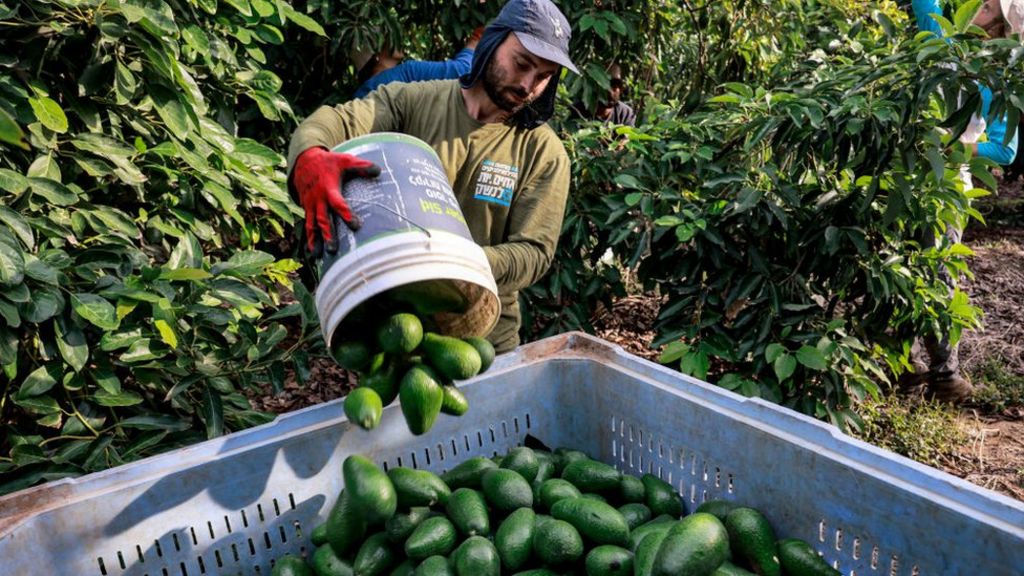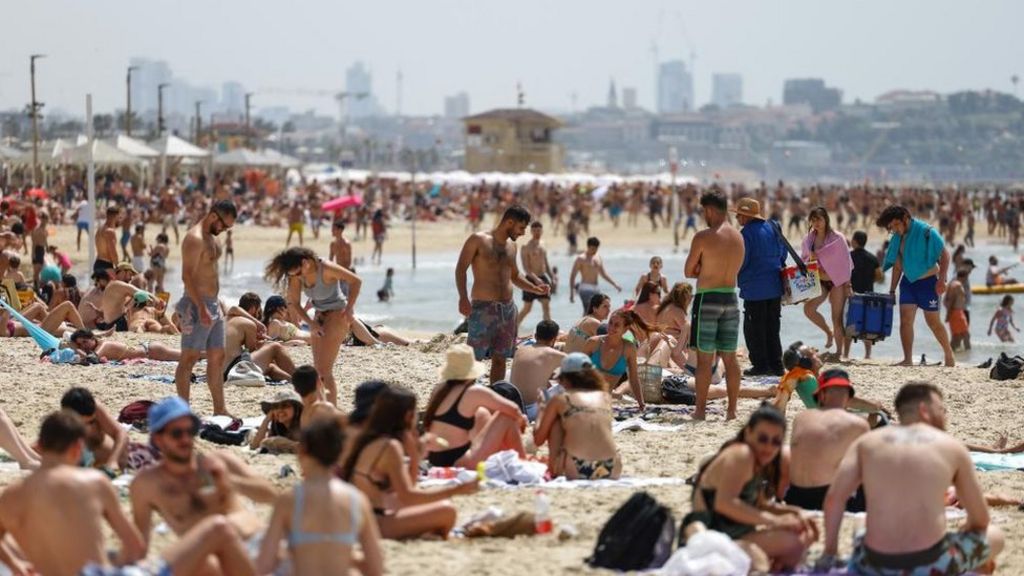Economy
The ‘yes, but’ economy. Yes, we’re worried about recession — but the economy remains resilient
|
|


New York
CNN Business
—
Each week brings head-scratching contradictory news about the economy. This past week was no different, with a batch of economic reports showing that — despite the recession talk — the US economy shows remarkable resilience.
Yes, the economy is strong. But it comes with a lot of caveats.
Let’s review:
- November’s jobs report defied analysts’ expectations, adding 263,000 new roles and keeping America’s jobless rate at 3.7%, almost a half-century low.
- The Federal Reserve’s favorite inflation gauge, the PCE Price Index, finally showed signs of cooling.
- Gross domestic product grew at a 2.9% annualized rate last quarter, a sharp bounce back from shrinking in the first half of the year.
However, these are just ingredients in a murky soup of conflicting “yes, but” headlines.
Yes, consumers say they feel lousy about the economy. But a record 196 million Americans went shopping over the Thanksgiving weekend — and those roaring sales numbers weren’t just because inflation has pushed prices higher, but also because people were making more transactions, according to Adobe Analytics.
Curtis Dubay, chief economist at the US Chamber of Commerce calls this “second-hand pessimism” and says the economy might not be doing as poorly as you think.
Yes, inflation at near 40-year highs is biting into family budgets. But Americans are booking air travel and heading to Disney parks in near-record numbers, even with higher park prices.
Yes, economists are worried about a recession, but the job market is incredibly tight with more than 10 million open jobs and 1.7 jobs available for anyone who’s searching for one (or looking to job hop).
“The labor market is incredibly strong again,” Federal Reserve Chairman Jerome Powell in a speech Wednesday. “It’s too great, in a way, because it’s going to be adding to inflation.”
So what’s next?
The truth is that no one knows what happens next. Forecasts have been notoriously unreliable in the post-Covid economy. (Remember “transitory” inflation?”)
The Fed has been trying to contain the highest inflation since the 1980s, jacking up interest rates six times this year and even rolling out a bumper three-quarter-point hike not once but four times in a row.
That means the next year will no question be a challenge as all that tightening continues to work its way through the economy.
But household finances are in better shape to handle it, with an excess $1.7 trillion in savings as a cushion — although people will likely have to dip into more of their savings.
And while the housing market may be cooling, it’s not crashing. After a very strong 2021, the sector is “readjusting, recalibrating,” Bess Freedman, CEO of Brown Harris Stevens, said on CNN’s “Early Start.”
Covid broke the economy and putting it back together has been hard to measure. Tens of millions of jobs were lost overnight. Schools closed, factories shuttered, more than a million lives lost. More than two years later, we’re still struggling to gauge the strength and durability of the recovery.
Economy
Canada will take bigger economic hit than U.S. if Trump wins election: report – Global News
Canada stands to bear a greater economic burden than the United States if Donald Trump wins the upcoming presidential election and imposes promised tax cuts and tariffs on all U.S. imports, a new report warns.
The analysis released Tuesday by Scotiabank Economics says if Trump returns to the White House and follows through on his vow to slap a 10-per cent tariff on all imported goods — with the exception of China, which would face a 60-per cent carve-out on its U.S. exports — and countries retaliate with their own, there would be “substantial negative impacts” on the U.S. economy. GDP would likely fall by more than two per cent by 2027 relative to current forecasts, while inflation would rise 1.5 per cent, leading to a two per cent interest rate hike.
In Canada, the economic impact would be even more stark with an expected GDP drop of 3.6 per cent, given its reliance on trade with the U.S. Inflation and interest rates would also be pushed up for the next two years — 1.7 per cent and 190 basis points, respectively — the report suggests.
“What Trump is looking to do is much broader, and much more concerning, than the tariffs he imposed during his first term,” said Scotiabank’s chief economist Jean-François Perrault, who authored the report.

The report also serves as another reminder that Canada needs to urgently address its issues with lagging productivity, warning the problem makes Canada more vulnerable to economic shocks brought by trade policy changes in the U.S. and abroad.
Perrault says it’s far too late to fix the problem in time for the U.S. election in November.
“It takes a long time to change direction on productivity,” he said in an interview. “Maybe you can make up some ground over the next few quarters, but we need massive amounts of progress to get to where we need to be (to withstand U.S. economic shocks).”
Trump’s policies seen as more likely than Biden’s
Although the analysis examined the impact of policies proposed by both Trump and U.S. President Joe Biden, it focuses more on the fallout from Trump’s promises.
That’s because they’re not only more potentially harmful, Perrault said, but also because they’re more likely to be implemented than Biden’s vow to raise the corporate tax rate.
“There’s really no appetite in the U.S. right now for any kind of tax hike,” Perrault said.
Implementing a change to the corporate tax rate would require Biden’s Democrat party to control both chambers of Congress — a scenario seen as highly unlikely, given recent polling. Trump’s proposals, meanwhile, are seen as more likely to be implemented quickly and without congressional approval, particularly his expanded tariffs.
During his presidency, Trump imposed tariffs on about US$50 billion worth of Chinese goods imported to the U.S., later expanding to another US$300 billion, sparking a trade war with China. Many of those tariffs have remained in place under the Biden administration.
Trump also slapped tariffs up to 25 per cent on imported washing machines, solar panels, steel and aluminum in 2018. Canada and Mexico were later exempted from the steel and aluminum tariffs in 2019, although the Canadian aluminum tariff was briefly reintroduced in 2020.

U.S. government data shows those tariffs — none of which were legislated or approved by Congress — have cost American manufacturers more than US$230 billion as of March 2024 and have shrunk the U.S. economy by 0.3 per cent.
Trump has repeatedly claimed tariffs serve to punish unfair trade practices from other countries, despite agreement among economists that they raise prices for American consumers, and says he wants to expand them to 10 per cent on all imported goods from every country if he wins in November. He has also said he will seek a 100 per cent tariff on imported cars, and carve out a 60 per cent tariff for Chinese imports specifically.
The most likely scenario — a continuation of Trump’s 2017 tax cuts beyond their 2025 expiration combined with across-the-board tariffs — would see Canada’s GDP stay three per cent lower long-term, and just over one-per cent lower in the U.S.
The Scotiabank report says the economic harm from the tariffs can be reduced on both sides of the Canada-U.S. border if Canada and Mexico negotiate an exemption with the U.S. under the Canada-United States-Mexico Agreement (CUSMA), which replaced the North American Free Trade Agreement (NAFTA) during the Trump administration.
Scotiabank predicts in that scenario, Canada’s GDP would only fall by 1.4 per cent in the short term — half the drop forecast without an exemption — and 0.3 per cent in the long term, while U.S. GDP would fall 1.7 per cent and 1.2 per cent, respectively.
Perrault says he’s “hopeful” such a carve-out could be negotiated, even though Trump would likely insist on further concessions that benefit U.S. trade. That “bigger stick” approach could be somewhat limited compared to the contentious CUSMA negotiations, however.
“Trump owns CUSMA, so he wouldn’t be in as much of a position to throw it away,” he said. “So maybe we get a little bit of a break.”

The report also examines the impact of Trump’s repeated vow to mass deport roughly 10 million undocumented immigrants living illegally in the U.S., which Perrault admits would be “politically and logistically infeasible.” It would also be economically harmful, the analysis found, permanently reducing both U.S. employment and GDP by three per cent, though the impact on Canada would be negligible.
The analysis says Canada and the U.S. could see additional economic impacts due to a number of scenarios it didn’t explore, including China retaliating to tariffs by unloading its U.S. Treasury holdings; further debt ceiling and budgetary crises in the U.S.; Trump’s appeasement of aggressive foreign adversaries like Russia and China; and domestic civil disorder regardless of who wins the U.S. elections.
Perrault said the findings also underscore the key difference between Trump and Biden as Canadian trade partners.
“Biden seems to view negotiations from a collaborative approach: how can everyone come away with a win?” he said. “Trump doesn’t see it that way. He’s very much in the mindset of, ‘How will this benefit me?’”
More on Money
© 2024 Global News, a division of Corus Entertainment Inc.
Economy
'We need a miracle' – Israeli and Palestinian economies battered by war – BBC.com


More than six months into the devastating Gaza war, its impact on the Israeli and Palestinian economies has been huge.
Nearly all economic activity in Gaza has been wiped out and the World Bank says the war has also hit Palestinian businesses in the occupied West Bank hard.
As Israelis mark the Jewish festival of Passover, the much-vaunted “start-up nation” is also trying to remain an attractive proposition for investors.
The cobbled streets of Jerusalem’s Old City are eerily quiet. There are none of the long queues to visit the holy sites – at least those that remain open.
Just after Easter and Ramadan and right in the middle of Passover, all four quarters of the Old City should be teeming with visitors.
Just 68,000 tourists arrived in Israel in February, according to the country’s Central Bureau of Statistics. That’s down massively from 319,100 visitors in the same month last year.
While it may be surprising that any visitors pass through Jerusalem at a time of such tension, many of those who do are religious pilgrims from across the globe who will have paid for their journeys well in advance.
Zak’s Jerusalem Gifts was one of only a handful of stores on Christian Quarter Street in the Old City, which is situated in occupied East Jerusalem, to have bothered opening up on the day I passed by.
“We’re only really doing online sales,” says Zak, whose business specialises in antiques and biblical coins.
“There are no actual people. The last week, after the Iran-Israel escalation, business dropped down again. So we are just hoping that after the holidays some big major miracle will happen.”
It’s not just in Jerusalem’s Old City that they need a miracle.
Some 250km (150 miles) further north, on Israel’s volatile border with Lebanon, almost daily exchanges of fire with Hezbollah since the war in Gaza began have forced the Israeli army to close much of the area and 80,000 residents have been evacuated further south. A similar number of Lebanese have been forced to leave their homes on the other side of the border.
Agriculture in this part of Israel is another economic sector that has been hit hard.
Ofer “Poshko” Moskovitz isn’t really permitted to enter his avocado orchard in the kibbutz of Misgav Am because of its proximity to the border. But he occasionally ventures in anyway, walking wistfully among the trees, to gaze at all of his “money falling on the ground”.
“I must go to pick in the orchard because it’s very important for the next season,” Poshko says. “If I don’t pick this fruit, the next season will be a very poor one.”
He says he is losing a lot of money because he can’t pick the avocados – around 2m shekels ($530,000; £430,000) this season, he says.


Although they provide a living for thousands of people, agriculture and tourism account for relatively small parts of both the Israeli or Palestinian economies.
So what does the wider picture show?
Last week ratings agency S&P Global cut Israel’s long-term ratings (to A-plus from AA-minus) reflecting a loss of market confidence after increased tensions between Israel and Iran and concerns the war in Gaza could spread across the wider Middle East.
That loss of confidence was also reflected in falling Israeli GDP – the total value of goods and services produced in the economy – which decreased by 5.7% in the last quarter of 2023. Many Israelis though say the country’s renowned high-tech and start-up sector is proving to be more “war-proof” than expected.
The coastal city of Tel Aviv is only 54km from Jerusalem. More pertinently, perhaps, it’s less than 70km from Gaza.
At times, you’d be forgiven for forgetting – however momentarily – that Israel is embroiled in its longest war since independence in 1948.


Families make the most of the early summer sun to play in the surf, couples eat lunch in the many open-air beach restaurants and young people strum away on guitars on the green spaces between the coastal road and the Mediterranean.
The backdrop is a city that is economically active and physically growing fast.
“They joke that Israel’s national bird should be the crane – the mechanical kind!” says Jon Medved, founder and CEO of the online global venture investment platform Our Crowd.
An engaging character with an overwhelmingly upbeat view of his world, Medved tells me that, “in the first quarter of this year, almost $2bn was invested in Israeli start-ups… We’re having one of the best years we’ve ever had. People who are engaged with Israel are not disengaging.”
Medved insists that, despite everything, Israel is still the “start-up nation” and a good option for would-be investors.
“There are 400 multinational corporations that have operations here. Not a single multinational, has closed its operation in Israel since the war.”
To an extent, Elise Brezis agrees with Mr Medved’s assessment.
The economics professor at Bar-Ilan University near Tel Aviv acknowledges that despite the last quarter’s GDP figures, Israel’s economy remains “remarkably resilient”.
“When it comes to tourism, yes, we have a reduction in exports. But we had also reduction in imports,” says Brezis. “So in fact, the balance of payments is still okay. That’s what is so problematic is that from the data, you don’t really feel that there is such a terrible situation in Israel.”
But Prof Brezis detects a wider malaise in Israeli society that isn’t reflected in economic data.
“Israel’s economy might be robust, but Israeli society is not robust right now. It’s like looking at a person and saying, ‘Wow, his salary is high,’ […] but in fact he’s depressed. And he’s thinking, ‘What will I do with my life?’ – That’s exactly Israel today.”
If the outlook in Israel is mixed, then across the separation barrier that divides Jerusalem and Bethlehem the view from the Palestinian side is overwhelmingly bleak.


Tourism is especially important to the economies of towns like Bethlehem in the occupied West Bank.
While some people are still heading to Jerusalem’s sites, in the place where Christians believe Jesus was born tourism “stopped immediately” after 7 October last year, says Dr Samir Hazboun, chairman of Bethlehem’s Chamber of Commerce and Industry.
That’s when Hamas attacked Israeli communities near Gaza, killing about 1,200 people, mainly civilians, taking about 250 hostages and sparking the current war.
There’s huge dependence and reliance on Israel’s economy here – but Israel virtually closed off the landlocked West Bank after 7 October and this has had a disastrous impact on the life and work of many Palestinians, Dr Hazboun says.
“The Bethlehem governorate right now is closed,” he says. “There are around 43 gates [in the Israeli security barrier] but only three are open. So with between 16,000 and 20,000 Palestinian workers from our area working in Israel, immediately, they lost their income.”
The chamber of commerce says that the revenues from local Palestinians working in Israel amounted to 22bn shekels ($5.8bn) annually.
“You can imagine the impact on the economy,” says Dr Hazboun, who is particularly concerned for the prospects for younger Palestinians the longer the war continues and more the Israeli and West Bank economies decouple.
“The younger generation now are jobless, they are not working. Many of them are talented people,” he laments.
“In June I’m expecting around 30,000 new graduates from the Palestinian universities. What they will do?
In Gaza itself the economy has been completely destroyed by six months of war. Israel’s relentless aerial bombardment and ground operations have killed 34,183 people, mostly women and children, according to the Hamas-run health ministry.
Unlike in some parts of Israel, where there is optimism around being able to ride out the storm and continue attracting investors, in the West Bank and Gaza there is little hope things will return to any kind of normal.
Economy
China Wants Everyone to Trade In Their Old Cars, Fridges to Help Save Its Economy
|
|


China’s world-beating electric vehicle industry, at the heart of growing trade tensions with the US and Europe, is set to receive a big boost from the government’s latest effort to accelerate growth.
That’s one takeaway from what Beijing has revealed about its plan for incentives that will encourage Chinese businesses and households to adopt cleaner technologies. It’s widely expected to be one of this year’s main stimulus programs, though question-marks remain — including how much the government will spend.




-
News22 hours ago
Amid concerns over ‘collateral damage’ Trudeau, Freeland defend capital gains tax change
-
Art19 hours ago
The unmissable events taking place during London’s Digital Art Week
-



 Politics23 hours ago
Politics23 hours agoHow Michael Cohen and Trump went from friends to foes
-



 Real eState24 hours ago
Real eState24 hours agoBlending Function and Style: The Best Garage Door Designs for Contemporary Homes
-
News23 hours ago
U.K. tabloids abuzz with Canadian’s ‘Loch Ness monster’ photo
-
Health24 hours ago
Interior Health delivers nearly 800K immunization doses in 2023
-



 Politics22 hours ago
Politics22 hours agoPolitics Briefing: Saskatchewan residents to get carbon rebates despite province’s opposition to pricing program
-
News21 hours ago
What is a halal mortgage? How interest-free home financing works in Canada








